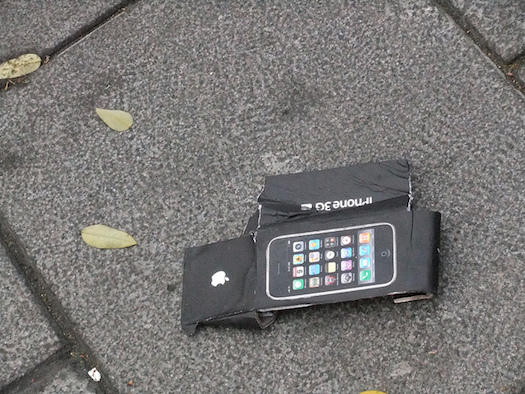Radio Tomorrow with James Cridland
Regular readers, both of you, will know that I have a thing about “lazy Buggles headlines”.
Technology journalists can’t resist the call of The Buggles to headline a piece – any piece – about new technology. I’ve seen Video Killed The Radio Star used to promote everything from video conferencing to poor-quality Flash movies on websites. It’s a little irksome, since video didn’t kill the radio star as we know, but if you repeat something often enough, people start believing it. Just ask your ad sales team.
We should, as an industry, gently point out to these journalists that radio is still an amazingly popular medium with far more users than the instantly forgettable widget or gadget that this story is about. We should, as an industry, be singing radio’s praises with one voice.
But there’s another, more insidious trend that I’m beginning to see: the trend of the “desperate radio denigrators”.
The desperate radio denigrators are people behind some crappy app that does something with audio. They’re desperate because they’ve spent hundreds of thousands of dollars on a crappy app, and they need people to use it. It’s apparently not done to slag off other apps, so they come after broadcast radio instead.
The desperate radio denigrators all have the same pitch, strangely. They start by telling us how great audio is; then some combination of how dreadful radio is or how nobody is listening any more; then they have a crappy video of someone using their crappy app and smiling a lot, and then they tell you to go and download this crappy app and try it for yourself: usually accompanied by some copyright-free music.
One company in the UK spent a long time saying why radio was rubbish and why their crappy app was better: and then spent even longer trying to get these radio companies to upload their content to their crappy app. Some radio companies, inexplicably, did.
There’s a new app doing the rounds at the moment. It’s from the US, and literally every communication I’ve seen from this company has started by telling me how dreadful radio is. Radio isn’t interactive, it says (cue a raised eyebrow from every talkback station on the planet); radio doesn’t let you hear different views (cue a raised eyebrow from every listener). And, fittingly, I’ve just been forwarded an email they’ve sent – to radio people – that starts with a lazy Buggles headline.
The fact is that radio has figures that they’d kill for – nine out of ten people listen to radio in most countries, which is more than will probably ever use their app, or indeed, any app.
Perhaps we should remind the desperate radio denigrators of that. Perhaps, too, the radio industry might do an even better job of being its own cheerleader by not taking these attacks lying down and actually confronting these guys. Who’s in charge here?
You can get my newsletter at james.crid.land and until next time, keep listening.
About The Author
 James Cridland is a radio futurologist, and is Managing Director of media.info, a companion website to radioinfo and AsiaRadioToday.
James Cridland is a radio futurologist, and is Managing Director of media.info, a companion website to radioinfo and AsiaRadioToday.
He has served as a judge for a number of industry awards including the Australian ABC Local Radio Awards, the UK Student Radio Awards, and the UK’s Radio Academy Awards, where he has also served on the committee. He was a founder of the hybrid radio technology association RadioDNS.
James is one of the organisers of nextrad.io, the radio ideas conference each September, and is also on the committee of RadioDays Europe. He writes for publications including his own media.info, Radio World International and RAIN News.
James recently moved from North London to Brisbane with his partner and a two year-old radio-loving toddler. He very, very much likes beer

